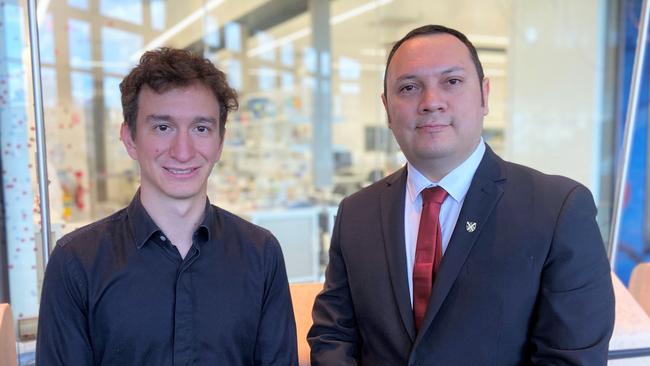Queensland researchers identify genes linked to self harm
Queensland researchers have made a significant mental health breakthrough, identifying 11 genes linked to self harm following a study that took genetic data from more than 150,000 people.
QLD News
Don't miss out on the headlines from QLD News. Followed categories will be added to My News.
QUEENSLAND researchers have identified 11 genes associated with people who have engaged in self harm or thought about it.
The QIMR Berghofer Medical Research Institute scientists analysed genetic data from more than 150,000 people to identify differences in DNA between those who had self harmed, or thought about it, and those who had not.
About 23,000 people in the study had thought about self harm and another 7000 had harmed themselves, including 3500 who had attempted suicide.
THE SIGNS THIS MUM MISSED BEFORE HER DAUGHTER’S SUICIDE
SUICIDE A SIGNIFICANT CONCERN FOR PREGNANT WOMEN
Self-harm is defined as any behaviour that involves the deliberate causing of pain or injury to oneself, usually as an extreme way of trying to cope with distressing emotions. It can include self-inflicted physical harm, such as self-cutting or burning, dangerous drinking or drug use and eating disorders.

QIMR Berghofer PhD candidate Adrian Campos said twin studies had shown self harm had a genetic or heritable component but the latest research, using data from the UK Biobank, had allowed them to identify some of the genes involved.
Although some of the 11 genes had previously been linked to mental disorders and response to stress, two had never been associated with any psychiatric or behavioural traits.
“Some studies have suggested that there are differences in the heritability of suicide ideation between men and women so that would suggest that there are sex-specific genes, or sex-specific genetic effects, which is something that we would like to study further,” Mr Campos said.
The scientists used the results of their analysis to develop a genetic risk score to help estimate a person’s chances of developing thoughts of self-harm or self-harming behaviours.
Although much more work is needed, their hope is to build on the research to improve the test to the point where they could accurately predict a person’s risk of self-harm.
“It’s one of the objectives of our study to start paving the way to identify new treatments and also risks assessments,” Mr Campos said.
Study leader, Miguel Renteria, of QIMR Berghofer’s genetic epidemiology group, said seven of the genes they had identified were linked to thinking about self-harm and four to acting on those thoughts, with only one gene linked to both.

“These findings are important because very little has been known about why some people who struggle with mental illness also engage in self-harm,” Dr Renteria said.
“More Australians die by suicide than from skin cancer, but there’s far less known about the biological and medical basis of this behaviour.”
Dr Renteria said that although genes played a role in a person’s susceptibility to engage in self-harm, protective factors included having a supportive family and social relationships, a sense of purpose and connections to good health services.
“Seeking help is very important and there are many people and organisations that can help,” he said.
For help: Kids Helpline - 1800 55 1800.
Lifeline - 13 11 14.
Suicide Call Back Service - 1300 659 467.
Beyond Blue - 1300 22 4636.

